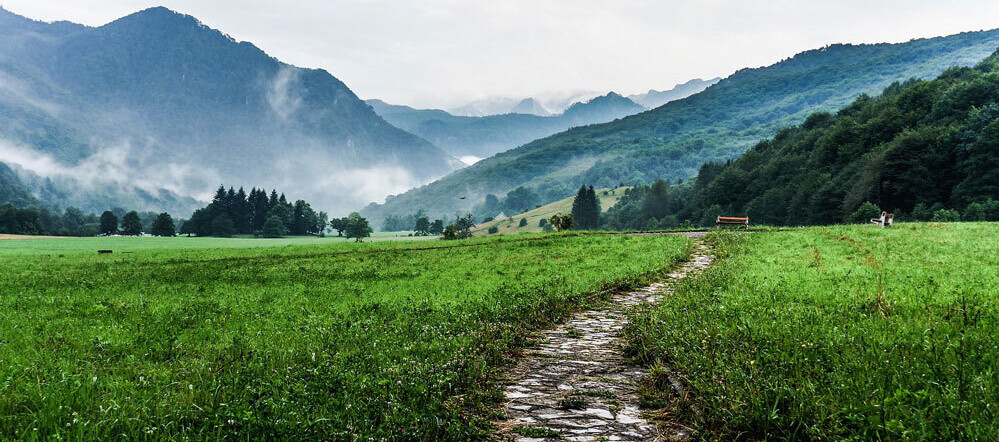CILCA 2017: Human Culture and the Natural World in Colombia
One of EarthShift Global’s fundamental business principles is the goal of building better relationships between human culture and the natural world, in socially equitable and economically sound ways.

One of EarthShift Global’s fundamental business principles is the goal of building better relationships between human culture and the natural world, in socially equitable and economically sound ways. I experienced two very different aspects of this on a recent trip to Colombia, which combined spending time with the tribal peoples living sustainably in the Rainforest around the Amazonas River, and attendance at one of South America’s most advanced sustainability conferences: the CILCA 2017 International Conference on Life Cycle Assessment, held in Medellín.
Medillín, Colombia’s City of Eternal Spring nestled in the Aburrá Valley, is known as the place “where the flowers walk through the streets.” The city’s wonderfully friendly inhabitants plant hundreds of trees each year, use separate garbage and recycling bins, and maintain streets that are virtually litter-free and rich in public art, along with a modern citywide transportation system that connects with wilderness reserves.
CILCA 2017 was the biggest CILCA yet, with attendees from 22 countries and 248 study presentations. Hosted by the prestigious EAFIT University, whose remarkable landscaping included trees dripping with flowering orchids and bromeliads, CILCA 2017 had participation from many of the founders of LCA in Latin America. They include:
- Costa Rica’s Ana Quirós Lara, President of Green Building Council, C.R.;
- Brazil’s Gil Andrei de Silva,
- Chile’s Claudine Peña,
- Mexico’s Patricia Güerica and Nydia Suppen of CADIS,
- Argentina’s Alejandro P. Arena of ASADES (Asociación Argentina de Energías Renovables y Ambiente),
- Peru’s Isabel Quispe, of PUCP (Pontifica Universidad Católica del Perú) and Sonia Valdivia of the World Resources Forum and
- Colombia’s Carlos Naranjo of Gaia Servicios Ambientales.
Highlights of the Event from My Perspective
An important issue was raised by Sonia Valdivia in the plenary panel on "Business perspectives on LC contribution to sustainability goals" with Kristina Bowers, Programme Officer, Life Cycle Initiative, UN Environment and Nydia Suppen. Valdivia said, “We need to pay much more attention to our ocean resources; they are not infinite. The fishing resources have been identified by UNEP among the priority ones in the Latin American region
Our scientific community needs to do more LCAs in this area. For example, we do not have one single LCA of marine litter.” Agreed, Sonia! I believe we need to start measuring and counting our ocean’s resources. These thoughts provoked the Medellín Declaration.
An interesting study was presented by Ian Vázquez Rowe from Pontificia Universidad Católica of Perú on a Green Protein Footprint (GPF). He said, “There is an increasing need to merge environmental and nutritional indicators in order to enhance worldwide food security. In this context, GPF is an attempt to facilitate decision-making by introducing measures to increase sustainability and reduce environmental burdens in food production systems.” Although the manuscript is yet to be published, they do have two published articles that tackle the anchovy industry from different perspectives: the first assesses the environmental impacts associated with the fishing operations related to European anchovy fishing in Cantabria (northern Spain) under a life cycle approach, and the second uses LCA to compare the great variety of anchovy canned products depending on three process variables: origin of the anchovy (Cantabria, Argentina and Chile or Peru), the type of oil (refined olive oil, extra virgin olive oil, and sunflower oil) and the packaging (aluminum, tinplate, glass and plastic)
Chile’s Pia Wiche of Wiche Sustainability had a very interesting poster on some surprising positive effects of a wind farm there. Her preliminary research shows that the wind turbines break up the strong wind coming off the ocean so that the resulting wind is not as intense or damaging for the semi-arid plants in the area, providing a kind of shield. The results after 10 years show a bigger increase in the groundcover plants impacted by the wind turbines, theoretically due to less wind stress and more dew and moisture available as the water is not as quickly evaporated by the otherwise strong winds. This in turn helps build topsoil. More data is to be collected and analyzed. The poster and references can be found in: http://www.piawiche.cl/publicaciones/windshields/
EarthShift Global’s Caroline Taylor presented on “Social LCA of a government grant for food crops in Guatemala” - a success story on many different levels. The study showed how well S-LCA and S-ROI worked together in this analysis. Additionally, the investment from the US Department of State was shown to be very worthwhile. Most importantly, the farmers, women, community members and indigenous peoples all seem to be profiting, with increases in health and no apparent negative impacts. Vista Volcanes continues to be a successful strong leader in teaching agricultural best practices and helping to improve the lives of the people in Guatemala and El Salvador.
I was happy that the organizers arranged a special wrap-up guest: an indigenous shaman from the Huitoto tribe of Colombia. Indigenous people are truly the originators of sustainability, taking only what they need and serving as practitioners of permaculture as well as caretakers of the land. They are steeped in the understanding of the interrelationships of everything. They also value “Being over Having”, as “Having” is finite and “Being” is not. Unfortunately, their lifestyles are disappearing along with their primal habitats. My hope is that we might use their values of simplicity, transparency, and respect and care for the environment as a touchstone. Let us appreciate their ancient wisdom and act accordingly.